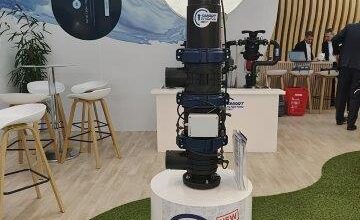Israel-Chicago Collaborative Innovations for Water resources
Research collaborations between Israel and Chicago targets fresh drinking water by 2020


The University of Chicago and Ben-Gurion University of the Negev will begin funding a series of ambitious research collaborations that apply the latest discoveries in nano-technology to create new materials and processes for making clean, fresh drinking water more plentiful and less expensive by 2020.
The joint projects will explore innovative solutions at the water-energy nexus, developing more efficient ways of using water to produce energy and using energy to treat and deliver clean water.
University of Chicago also brings to the effort two powerful research partners already committed to clean-water research, the Argonne National Laboratory in Lemont, Illinois, and the Marine Biological Laboratory in Woods Hole, Massachusetts.
The first wave of research proposals include fabricating new materials tailored to remove contaminants, bacteria, viruses and salt from drinking water at a fraction of the cost of current technologies; biological engineering that will help plants maximize their own drought-resistance mechanisms; and polymers that can change the water retention properties of soil in agriculture.
UChicago, BGU and Argonne have jointly committed more than $1 million in seed money over the next two years to support at least five inaugural projects, with the first projects getting underway this fall.
One proposed project would attempt to devise multi-functional and anti-fouling membranes for water purification. These membranes, engineered at the molecular level, could be switched or tuned to remove a wide range of biological and chemical contaminants and prevent the formation of membrane-fouling bacterial films. Keeping those membranes free of fouling would extend their useful lives and decrease energy usage while reducing the operational cost of purifying water.
Another proposal focuses on developing polymers for soil infusion or seed coatings to promote water retention. Such polymers conjure visions of smart landscapes that can substantially promote agricultural growth while reducing irrigation needs.
Officials from both the U.S. and Israel hailed the collaboration as an example of the potential for collaborative innovation that can improve quality of life and boost economic vitality.




